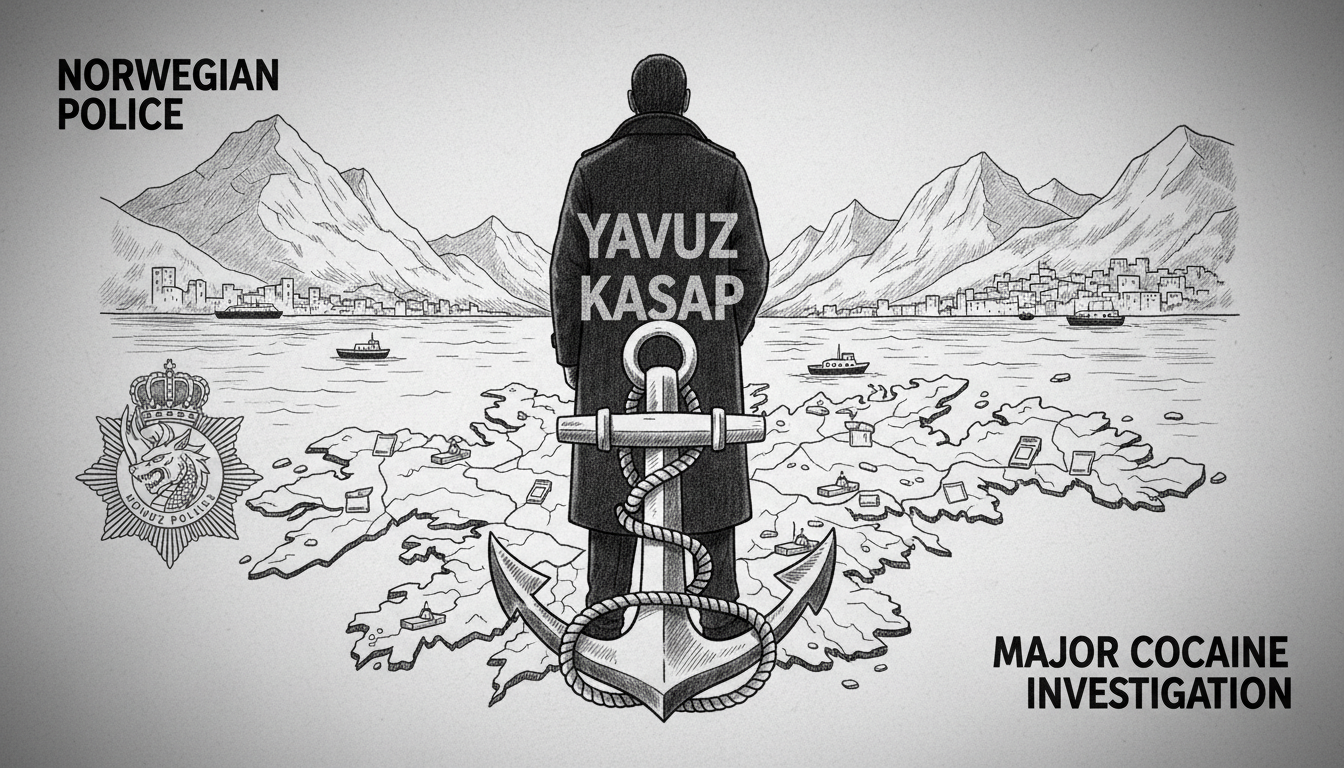Norwegian authorities have identified Yavuz Kasap as a central figure in what they describe as a major threat to Norwegian society. Police allege the 34-year-old coordinates cocaine imports to central eastern Norway that are rapidly distributed nationwide.
"We believe he has held a central and overarching role," said police prosecutor John Ivar Johansen from the National Criminal Investigation Service.
Kasap faces multiple serious charges including drug trafficking and involvement in violent crimes. Police have uncovered encrypted chat groups where they claim Kasap operated under aliases including "Reis."
"He involves himself in the smallest details," Johansen stated.
Norwegian police connected Kasap to a bombing incident in Drøbak and an attempted murder plot against a gang leader imprisoned at Bastøy. In the latter case, encrypted messages discussed obtaining weapons and monitoring ferry arrivals.
Kasap's criminal history dates back to 2016 when customs officials discovered 172 kilograms of hashish in a garage connected to him. He fled to Turkey before his trial and has remained there since summer 2018, utilizing his dual citizenship to avoid extradition.
Recent police operations have targeted Kasap's alleged network across multiple Norwegian regions. Since last December, nearly 30 people have been arrested in connection with drug importation and distribution operations.
In one case, investigators tracked a specially modified Volvo from Germany to Norway containing 24 kilograms of cocaine hidden in secret compartments. Police believe this was part of Kasap's operation.
Turkish authorities recently arrested Kasap along with 19 other suspects, including his cousin and a Swedish gang leader. However, Norwegian officials doubt he will be extradited due to his Turkish citizenship.
Police prosecutor Anders Svarholt expressed relief about Kasap's detention in Turkey, stating: "We believe he uses clearly serious methods that represent a democratic problem. There's a lot of money involved that gives significant power in such environments."
The case highlights how international drug networks exploit European citizenship laws to evade justice while continuing criminal operations across borders.
